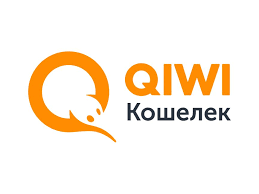Russian-owned multinationals (MNCs) are relocating to friendlier jurisdictions, with another two businesses announcing redomiciling plans this past week. Both are representative of the new, more financially attractive options available for them.
Qiwi

Qiwi provides payment and financial services in Russia and CIS countries. The group includes QIWI payment systems, QIWI Bank, CONTACT money transfer system, Factoring PLUS, Flocktory, and RealWeb. The company has representative offices in three countries. Founded in 2007, Qiwi was listed on Nasdaq in 2013, and had built up a payment network has more than 16.6 million wallets and virtual cards, as well as almost 106,000 terminals and payment points.
US and EU sanctions have effectively destroyed much of its business, with Nasdaq asking the company to delist although the company was involved in restructuring its Russia business away from its international operations. This delisting will occur on September 16.
Qiwi then sold its Russian assets, consolidated under JSC Qiwi, as part of business restructuring in January 2024 to a Hong Kong-based company.
Qiwi relisted their international business operations on the Astana International Exchange (AIX) (Kazakhstan) on September 6, and as part of its corporate restructuring is currently changing its name to NanduQ. The rebranded company will now be looking to rebuild its CIS business with regional, rather than Western investors.
Novomet

Novomet Oil Services is a major Russian manufacturer of pump equipment for oil production. Novomet makes oil submersible equipment and complete rigs for oil production and water lifting, and also provides oilfield services. The group’s plant, with two industrial sites, and headquarters are located in Perm and it has R&D centers in Perm and Moscow. The company also has branches in Azerbaijan and Kazakhstan, as well as service centers in Russia, other CIS countries and countries outside the former Soviet Union. It has redomiciled from Cyprus to the Kaliningrad Special Administrative Region (SAR).
The Kaliningrad SAR is one of two such regions along with Russky Island, in Vladivostok. These SAR provide tax incentives for investors, including 100% profits tax breaks, lower subsequent CIT rates, in addition to other incentives such as VAT rebates, and discounted utilities costs amongst others. They are in part designed to allow Russian companies previously based overseas to return their capital and business operations to Russia and negate any threat of asset confiscation and other corporate harassments. Cyprus is part of the European Union and is now considered unsafe for Russian companies given the sanctions regime and seizure of assets.
Summary
These two cases, although different, illustrate the same basic position – holding investments in Western jurisdictions is now considered problematic and not without risk for Russian corporate businesses. Qiwi have been a victim of Westen sanctions aimed not at their specific business operations, per se, but as part of the financial trade mechanism targeted by the United States. This means that while the company was not placed under any sanctions and operated legally, its corporate industry was destroyed. It is now hoping to restructure and raise funds in Asia to reestablish what had been a significant business.
On the other hand, it also removes Western investment and interest from what had been a pioneering and innovative Russian tech company. Western tech has lost its exposure to Russian ideas and lost the potential for profiting from that development. Investors in Asia will now pick up these technical and financial benefits instead in what remains a huge growth industry.
It is partially the same for Novomet – providing engineering services in the oil sector, which is also sanctioned. The company operates legally, but cannot now view the West’s sanctions regime as either fair or reliable. Observing the seizure of Russian capital and other assets – often highly disputed and with limited legal recourse to redress matters – Novomet have returned their business to its Russian roots and redomiciled to a Russian SAR.
This is bad news for Cyprus, one of the EU smaller members, which had built up a sizeable offshore industry based partially on servicing Russian clients. The entire Novomet corporate administration and payment of taxes and related employment and other benefits have been removed from the country and transferred to Russia, along with multiple other Russian businesses. As a consequence, since 2022, Cyprus’s GDP growth has halved, while its unemployment rate has doubled. Kaliningrad’s economic performance has gone in the opposite direction while it also develops its own, Russian variant of an offshore financial services industry.

 Русский
Русский













